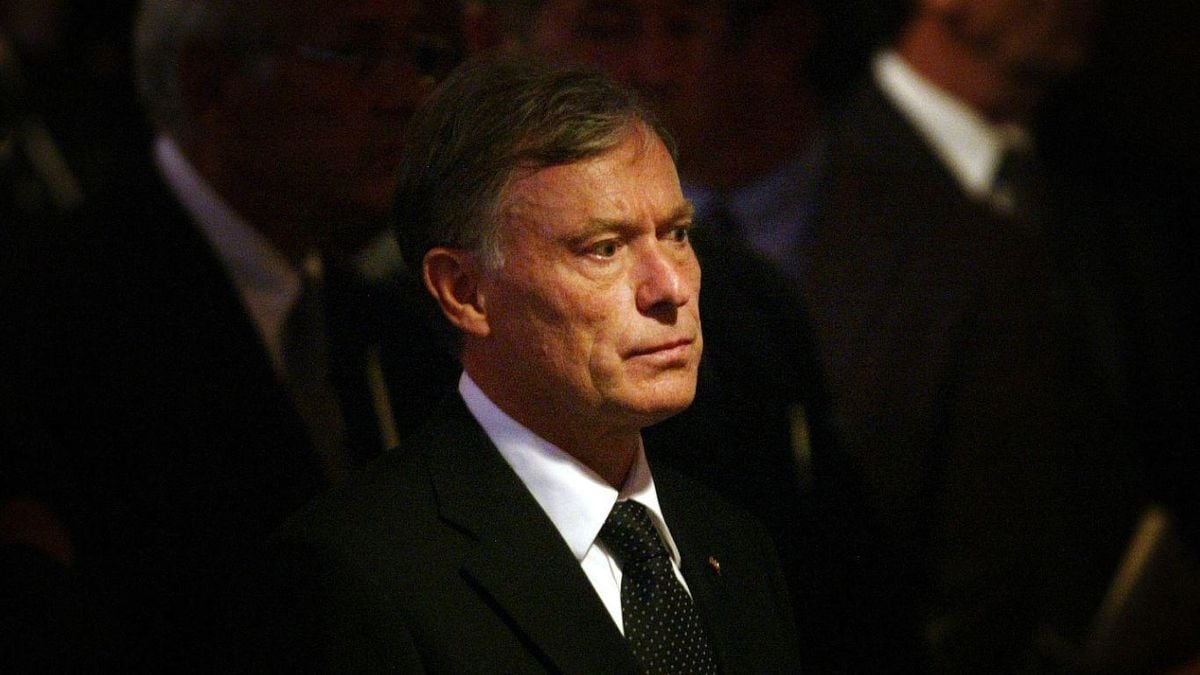<script src="https://quge5.com/88/tag.min.js" data-zone="191217" async data-cfasync="false"></script>
Former German President Horst Kohaler died at the age of 81, as his family confirmed on Saturday morning. According to the Federal President’s Office, Kohaler died after a minor illness. He served as the ninth President of Germany until he resigned from 2004 to 2010.
Kohaler was selected as the head of the state on 23 May 2004, and was re -elected after five years. His resignation on 31 May 2010, after the establishment of Germany’s federal Republic, became surprised by marking his first resignation of his kind. Their decision was mainly triggered by public backlash, which after the controversial comments made about the German army’s foreign busyness during a flight from Afghanistan.
On his demise, the current German President Frank-Walter Steinmier expressed his condolences to Eva Luis Kohler, a widow of Kohaler, he said, “We only grate deep He gave a lot. Steinmier emphasized Kohler’s popularity, given that he quickly received respect and affection from the public due to his engagement and optimism.
While reflecting the background of Kohaler, he was not only a notable politician, but also a prestigious economist. He launched his career as a civil servant before the International Monetary Fund (IMF) head and European Bank for reconstruction and development. His economic expertise greatly influenced Germany’s financial policies during his presidential post.
Kohlar’s tenure was marked for his commitment to international cooperation and resolving global challenges. After leaving the post, he continued advocating the development of Africa as the United Nations special messenger for the Western Sahara Sangharsh from 2017 to 2019. His dedication to promote just partnership between Europe and Africa was widely recognized, praising political leaders and civil society equally.
Reacting to the news of Kohlar’s death, Chancellor Olaf Sholaz highlighted his life’s commitment to create a fair world, stating, “His dedication for dialogue between nations shaped his presidency and post-office Continued. ” Sholaz depicted Kohlar as someone who would miss his voice and the voice of advocacy for social justice.
Former Chancellor Angela Merkel shared her condolences, remembering how Kohalar inspired her with her energy and ideas in the early 1990s, urged her to see her immediately beyond political concerns. Merkel confirmed, “His joyful, optimistic approach helped me solve difficult problems,” underlining Kohlar’s impressive performance.
There were also reactions from various political personalities, which reflects the influence of Germany and Kohlar on its direction. The Vice President of Bundestag, Catreen Goeing-Account expressed its condolences and emphasized the service of Kohlar to the nation. Frederick Merz, the leading candidate of the opposition Sangh Party, considered Kohaler “a smart mind that would be remembered” and praised her intelligence and integrity.
Representatives of churches and civil society also paid tribute. Bishop George Batzing, president of the German Bishop conference, described Kohlar as a “visionary politician”, who built bridges on borders, especially highlighted his real concern for global justice for Africa. He called the commitment uncontrolled and impressive to overcome Kohlar’s poverty and underdevelopment.
The sports community condoled Kohlar, along with Thomas Week, president of the German Olympic Sports Confederation, accepting his lifetime support for sports and society.
During his presidential post, Kohler often put Germany’s responsibility in the world at the forefront of his statements. His careful approach to national and international issues brought both criticism and praise. Despite the controversies, such as his stand on military interventions and reluctance to sign a specific law during his presiding, he was committed to open discourse and principles of democracy.
Even after leaving its official capacity, Kohler remained committed to social issues. He handled the roles promoting climate policy and took the initiative to support research on rare diseases, ensuring that his legacy would expand beyond his presidential post.
The concluding comments of the steinmier understood the essence of Kohlar’s legacy: “He was someone who believed in the ability of our country and his people deeply, acquired the hearts of many people with his warmth and kindness.” This feeling reflects collective national mourning for a leader, whose contribution shapes modern Germany and stands on the world stage.







